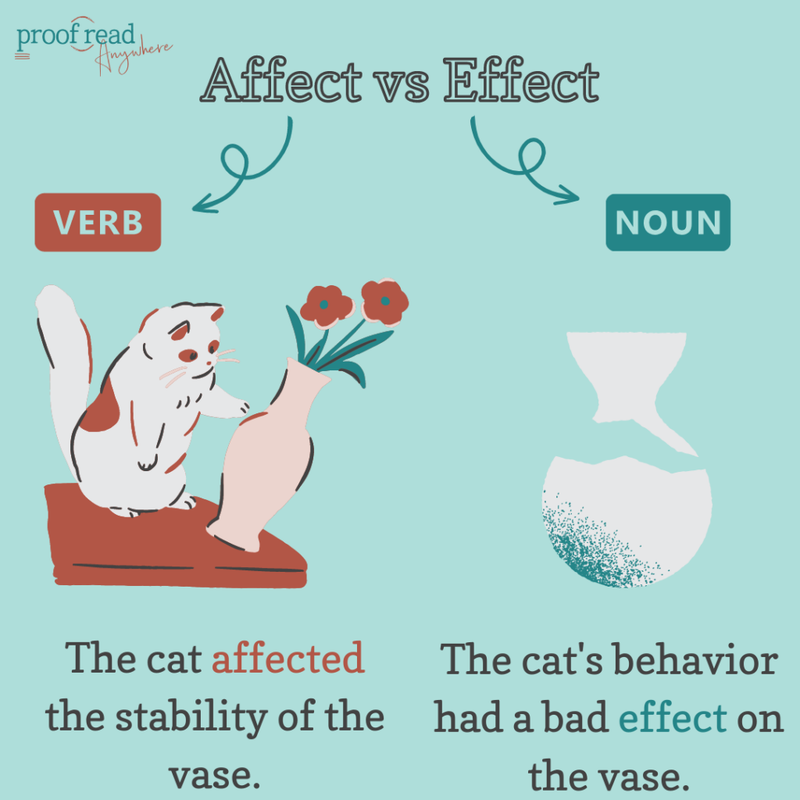Language is a powerful tool, but sometimes even the most articulate among us stumble over certain words. Whether it’s a case of mispronunciation, misuse, or simply confusion between similar terms, these common mistakes can lead to misunderstandings or even unintentional humor.
In this blog post, we’ll explore 18 words that people often get wrong when speaking, providing clarity and entertainment along the way. Let’s dive into these linguistic pitfalls and ensure that your vocabulary remains sharp and accurate.
1. Irregardless
Irregardless is a word that often finds its way into conversations, but it’s not technically correct. People mistakenly use it when they mean ‘regardless.’ The prefix ‘ir-‘ and the suffix ‘-less’ both convey negation, making the word redundant.
To avoid this common error, simply use ‘regardless’ to express the same idea. This mistake is prevalent in both casual and formal settings, leading to incorrect usage spreading further.
By being mindful of this, you’ll enhance your communication skills and avoid the pitfalls of using incorrect terminology. Remember, language precision matters!
2. Literally
The word ‘literally’ is often used incorrectly to add emphasis. Originally, it means ‘in a literal manner’ or ‘exactly as described,’ but it’s frequently used for exaggeration.
This misuse can dilute the impact of your message, as listeners may not take you seriously. To maintain credibility, reserve ‘literally’ for situations where something is true without exaggeration.
By understanding its correct application, you can avoid misunderstandings and communicate more effectively. Remember, words have power, and using them accurately enhances your ability to connect with others.
3. Ironic
Irony is a concept that many people find confusing, leading to frequent misuse of the term ‘ironic.’ It involves a situation that is contrary to what one expects.
However, people often label events as ironic that are merely coincidental or unfortunate. Understanding the true definition helps in using it correctly.
Whether in writing or speaking, applying ‘ironic’ accurately can enrich your expression and prevent miscommunication. It’s all about recognizing the nuances of language and being attentive to meaning.
4. Affect vs. Effect
The words ‘affect’ and ‘effect’ are often mixed up, as they sound similar but have different meanings. ‘Affect’ is a verb meaning to influence, while ‘effect’ is a noun denoting a result.
This confusion can lead to misunderstandings, especially in written communication. A handy tip to remember is that ‘A’ for ‘Affect’ is an Action, while ‘E’ for ‘Effect’ is an End result.
Being aware of these distinctions ensures clarity and precision in your language, making your communication more effective and engaging.
5. Expresso
‘Expresso’ is a common mispronunciation of ‘espresso,’ the rich coffee beverage enjoyed worldwide. Many mistakenly add an ‘x,’ possibly due to the word’s similarity to ‘express.’
This error is widespread, even among coffee enthusiasts. To avoid it, remember that ‘espresso’ comes from Italian, meaning ‘pressed out,’ referring to the brewing process.
By using the correct term, you not only show respect for the language but also enhance your credibility as a coffee aficionado. It’s a small change that makes a big difference in communication.
6. Peruse
The term ‘peruse’ is often misunderstood to mean ‘browse casually,’ but it actually implies reading something thoroughly and carefully. This mistake can lead to misinterpretations of intent.
When you say you’ll ‘peruse’ a document, you mean you’ll examine it with attention to detail. The casual misuse of ‘peruse’ diminishes its original meaning.
By understanding and applying this word correctly, you can convey your message with precision and clarity. It’s about valuing the depth of language and ensuring your words reflect your true intent.
7. Bemused
‘Bemused’ is frequently mistaken for ‘amused,’ though the two have distinct meanings. ‘Bemused’ means bewildered or confused, while ‘amused’ refers to being entertained.
This common error can lead to misunderstandings in both spoken and written communication. Knowing the difference enhances your ability to describe emotions accurately.
Using ‘bemused’ in the right context enriches your expression, allowing others to grasp your intended meaning with ease. It’s a reminder of the complexity and beauty of language.
8. Nauseous vs. Nauseated
The terms ‘nauseous’ and ‘nauseated’ are often used interchangeably, but they have different meanings. ‘Nauseous’ describes something that causes nausea, while ‘nauseated’ is the feeling of being sick.
This distinction is crucial for clear communication, especially in health-related contexts. When you say you’re ‘nauseous,’ you’re implying you’re causing nausea.
To convey your feelings accurately, use ‘nauseated.’ Understanding these nuances can prevent misunderstandings and ensure you’re understood. Language precision is key to effective communication.
9. Anxious vs. Eager
The words ‘anxious’ and ‘eager’ are often confused, though they express different emotions. ‘Anxious’ implies worry or unease, while ‘eager’ denotes excitement and enthusiasm.
This mix-up can alter the meaning of your message, leading to misunderstandings. To communicate your feelings accurately, choose the correct word depending on your emotional state.
By distinguishing between these terms, you can express yourself more clearly and connect with others on a deeper level. It’s about choosing words that truly reflect your intentions and emotions.
10. Redundant
The term ‘redundant’ is often used to describe something that is excessive or unnecessary. However, people sometimes misuse it to mean repetitive without context.
This mistake can lead to confusion in communication, especially in professional settings. Understanding the correct application of ‘redundant’ enhances clarity and effectiveness.
By using this word accurately, you can convey your message with precision, avoiding misunderstandings. It’s a reminder of the importance of language accuracy and the impact it has on expressing ideas.
11. Disinterested vs. Uninterested
The words ‘disinterested’ and ‘uninterested’ are commonly confused. ‘Disinterested’ means impartial or unbiased, while ‘uninterested’ refers to a lack of interest.
This distinction is important in many contexts, including legal and professional environments. Using them interchangeably can lead to misinterpretation of your intent.
To communicate clearly, ensure you select the appropriate term based on the context. Understanding this difference enhances your language precision and effectiveness in various situations.
12. Enormity
The word ‘enormity’ is often mistaken to mean ‘enormous size,’ but it actually refers to extreme evil or wickedness. This misunderstanding is common in both speech and writing.
To use ‘enormity’ correctly, reserve it for moral or ethical discussions. Using it to describe physical size can lead to confusion.
By understanding this distinction, you enhance your language accuracy, ensuring your message is precise. It’s a reflection of the complexity and richness of language, where nuances matter.
13. Momentarily
‘Momentarily’ is often used to mean ‘in a moment,’ but it actually means ‘for a moment.’ This misunderstanding can lead to confusion about timing.
To use it correctly, apply ‘momentarily’ when referring to a brief period, not an imminent action. This ensures clarity in communication.
Understanding this distinction helps you articulate your thoughts with precision, avoiding misleading statements. It’s about appreciating the subtleties of language and enhancing your communication skills.
14. Less vs. Fewer
‘Less’ and ‘fewer’ are often used interchangeably, though they have distinct uses. ‘Less’ is for uncountable quantities, while ‘fewer’ is for countable items.
This error is common in everyday language, especially in advertising and signage. To communicate accurately, match the word to the quantity type.
By mastering this distinction, you enhance your language precision, ensuring your message is both clear and correct. It’s a small change with a significant impact on communication.
15. Factoid
The term ‘factoid’ is often used to describe a small fact, but it originally meant a false statement presented as a fact.
This shift in meaning can lead to misunderstandings, especially in media and academia. To use ‘factoid’ correctly, understand its original intent and context.
By doing so, you maintain language integrity and convey your message accurately. It’s about being mindful of word evolution and its impact on communication.
16. Presently
‘Presently’ is often used to mean ‘currently,’ but it traditionally means ‘soon.’ This can lead to confusion in timing.
To use it correctly, apply ‘presently’ when referring to future actions, not ongoing ones. This ensures your message is precise and understood.
Understanding this distinction enhances your communication, allowing you to express timing accurately. It’s a reminder of the importance of language precision.
17. Travesty
The word ‘travesty’ is often misused to mean a tragedy or disaster, but it actually refers to a distorted or grotesque imitation.
This mistake can lead to confusion in both speech and writing. To use ‘travesty’ accurately, reserve it for situations involving mockery or distortion.
By understanding its true meaning, you enhance your communication skills, ensuring your words convey the intended message. It’s about recognizing the depth of language and using it wisely.
18. Invaluable
‘Invaluable’ is often confused with ‘not valuable,’ but it actually means ‘extremely valuable.’ This misunderstanding can lead to incorrect interpretations.
To use it correctly, apply ‘invaluable’ when describing something of great worth. This ensures your message is clear and effective.
By mastering this distinction, you enhance your vocabulary, allowing you to express value accurately. It’s a reflection of the richness of language and its ability to convey complex ideas.


















